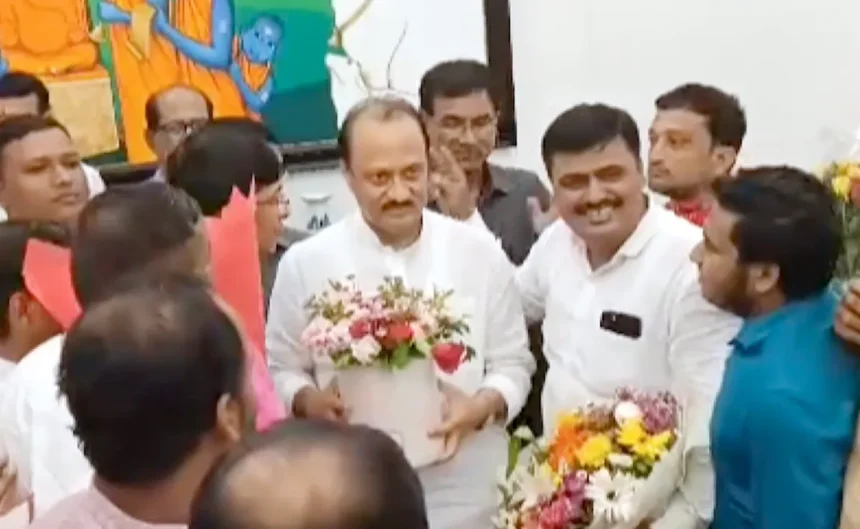In a significant political upheaval, the state of Maharashtra witnessed a series of events that have left the opposition in shambles, according to Madhya Pradesh Chief Minister Shivraj Singh Chouhan. The most recent development occurred on Sunday when Ajit Pawar, a prominent leader of the Nationalist Congress Party (NCP), orchestrated a vertical split within the party and joined forces with the ruling coalition of Shiv Sena and Bharatiya Janata Party (BJP) in the neighboring state.
Ajit Pawar’s decision to align himself with the Shiv Sena-BJP government has sent shockwaves through Maharashtra’s political landscape. As a result, he was appointed as the deputy chief minister, a significant position within the new administration. Additionally, eight other MLAs who defected alongside Pawar were sworn in as ministers in the Eknath Shinde-led government.
The NCP, led by Sharad Pawar, has long been a key player in Maharashtra politics. However, this recent turn of events has dealt a severe blow to the party’s standing and strength within the state. With Ajit Pawar’s move, the NCP has not only lost a prominent leader but also faces the daunting task of rebuilding and reorganizing its ranks.
Chief Minister Shivraj Singh Chouhan’s assessment of the situation highlights the impact of these political developments on the opposition in Maharashtra. The move by Ajit Pawar and the subsequent formation of the new government have left the opposition fragmented and struggling to regain its footing. The ruling coalition, on the other hand, has solidified its position of power, further consolidating its hold over the state.
The political realignment in Maharashtra has wider implications beyond the state itself. It signals a shift in power dynamics and alliances, potentially reshaping the political landscape in the region. The Shiv Sena-BJP government, with the addition of Ajit Pawar and his supporters, now boasts a stronger and more stable coalition. This new alignment is expected to have a significant impact on policy decisions and governance in Maharashtra.
The move by Ajit Pawar has sparked debates and discussions across the political spectrum. Supporters argue that his decision was driven by the need for stability and development in the state, while critics view it as an opportunistic move aimed at personal gain. Regardless of the motivations behind the move, its repercussions are undeniable.
For the opposition parties in Maharashtra, this development serves as a wake-up call. It highlights the importance of internal cohesion, strategic planning, and effective leadership to withstand political upheavals. As the state gears up for future elections, opposition parties will need to reassess their strategies and work towards rebuilding their ranks and connecting with the electorate.
Meanwhile, the ruling coalition in Maharashtra can celebrate its strengthened position. With a more united front, they are poised to push forward their agenda and address the challenges facing the state. However, they must also remain vigilant and responsive to the needs and aspirations of the people to ensure that their governance remains effective and inclusive.
The political landscape in Maharashtra has witnessed a seismic shift with the entrance of Ajit Pawar into the Shiv Sena-BJP government. The opposition now faces an uphill battle to reclaim its standing, while the ruling coalition gains momentum. As Maharashtra moves forward, the consequences of these political developments will continue to shape the state’s future trajectory.









